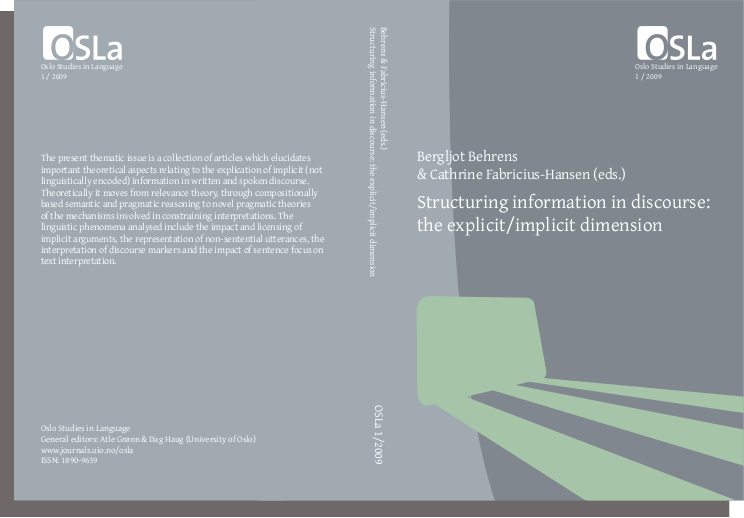Adverbial <i>doch</i> the Notion of Contrast
DOI:
https://doi.org/10.5617/osla.9Abstract
The paper provides a first analysis of one use of the German discourse marker doch, namely doch as conjunct adverb (CA). As CA, doch has two properties, concessivity and anaphoricity, that distinguish it from the conjunction doch, which is the other clause connecting use of the word. As conjunction, doch is not anaphoric and it may mark a greater variety of (contrastive) discourse relations besides concession. I argue that CA doch acquires anaphoricity and concessivity due to a combination of factors related to the fact that it is accented. More specifically, I claim that (i) accent on CA doch leads to an asymmetric focus-background structure of the doch-conjunct which in turn leads to the concessive interpretation of the discourse relation marked by doch; (ii) accent on CA doch evokes as a focus alternative the negation of the conjunct to which doch is attached and (iii) focus on CA doch is contrastive, which means that the alternative CA doch evokes is anaphorically linked to an antecedent in the preceding discourse. I also sketch a formal account of the concessivity and anaphoricity of CA doch.Downloads
Published
2009-01-02
Issue
Section
Artikler



